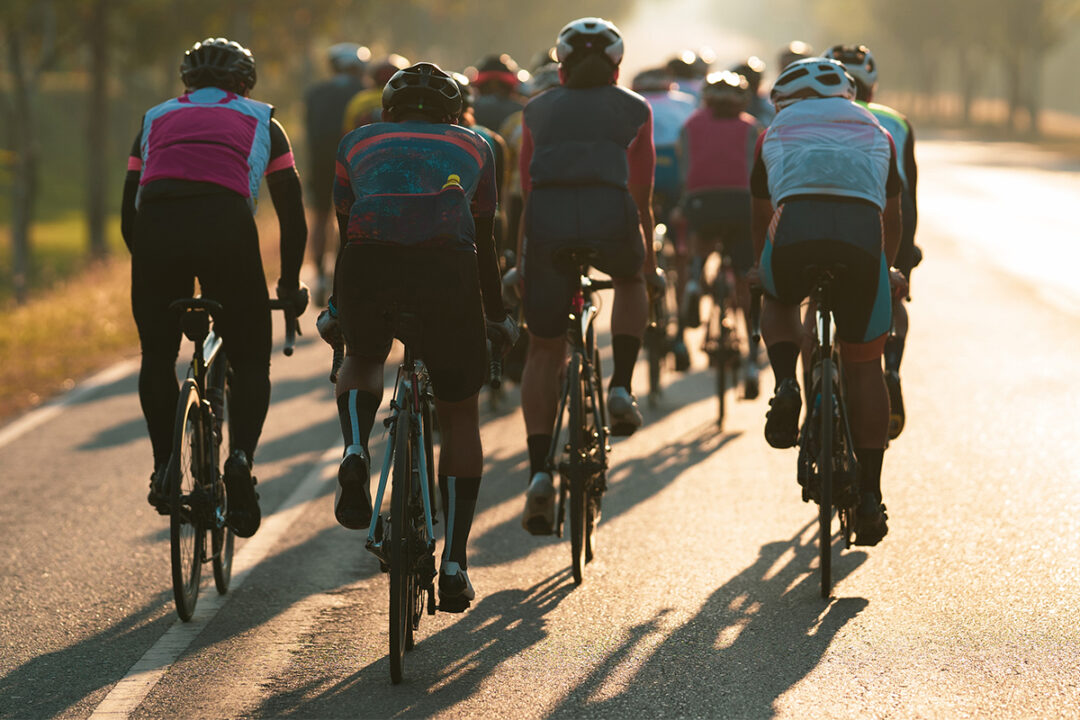I don’t mean to sound alarmist, but your favorite bike event is probably going to die. How do I know this? Because I’ve been around a long time and almost every bike event I’ve known has died (including the bike events that I’ve put on myself). This is due to the basic nature of bike events—they are usually run by one person—one tired, put upon, and frazzled person; and if that person decides to call it quits, the event dies.
In the New York City area, we are spoiled with long running bike events: Park Races in Central and Prospect Parks, FBF races, the Harlem Crit, the Tour of Somerville, GFNY, Branch Brook Races—these events survive because they have organizations behind them that don’t necessarily rely on just one person doing almost all of the work (Tom Mains does a LOT of work on FBF and Branch Brook, but he has help also, and he has an organization that can fill in when he’s not around, so I don’t consider Tom a one-man show, maybe he’s more of a “regional treasure”). But New York has lost many events, the Spring Series ran for decades before disappearing, the Rockleigh Crit is facing challenges, my goodness, even the Madison Square Garden Six day race, which predated the Tour de France and helped inspire that event (the original format of the Tour was for six days, to mimic the format of the popular six days races) couldn’t keep going, despite being a financial and cultural success for decades.
Lordy, that’s some depressing stuff there. And I’m also no help when it comes to a solution (see the reference to the dead events I put on above), but I do know some of the challenges when it comes to bike events, aside from the number one challenge, which is the main protagonist of the race just getting fed up with the process of putting on a bike events and driving themselves into a local lake.
Bike events need to happen in the world
For a bike event to be interesting in any way, it needs to happen outside, preferably in a place that is closed to traffic and can accommodate a moderate to large crowd. These three conditions are HUGE challenges. Finding a place closed to traffic to play about on bikes that isn’t the size of a backyard poses an immense challenge. Parks are great places for bike races, but the people who run parks want to make sure that the parks are available for everyone at all times, so your bike race is really only for a select few people isn’t it? That doesn’t sound fair to our park users, does it? Thanks for coming, would you like to buy a tote bag to support your local park?
Closing down a road in America is nearly impossible. Persuading a town council to close down a downtown area for a crit is like trying to convince them to put meth edibles in the grade school vending machines. There will always be one local business owner (usually named Gary, not sure why…) who will raise hell because they lost a day’s foot traffic due to a street closure. And if you try to put on an event that goes through multiple towns, you can multiply the number of Garys by a factor of ten.
Americans cannot fathom being inconvenienced for a bike event. Even if it passes by for only 15 minutes. We don’t place any cultural significance on bike events. Belgians will stand outside and cheer as a race passes. In America if an event gets in the way of a 5 minute drive to buy mulch and a Big Gulp there will be hell to pay, and American cannot be convinced otherwise.
Money is a thing
To put on a safe and legal event (yes, you can put on a non-sanctioned race that runs on the highway at 2:30am and call it a race, but you might be able to get away with that only once, because in 2022 people takes pictures of themselves doing EVERYTHING—even shady stuff) takes money, crazy amounts of money. You’ll need to pay for police overtime, insurance and porta-potties, and that’s just for a very basic event. So if you put on a race for say, 200 racers, you’ll have to charge quite a hefty entry fee to just cover costs. You could try to put on a larger event, for say 500 to 1,000 people but your costs will increase as the scope of your event increases. (Mo’ people, mo’ porta-potties.) And even then you might not be able to cover costs with entry fees, so you’ll have to try and raise sponsorship money. Welcome to hell, you’re now in the world of trying to justify ROI to companies for sponsoring your bike event, and we’ve also got an all accordion band playing the greatest hits of Nickelback to serve as your ear worm.
Bike people, simultaneously the best and worst people
Bike riders will drive 6 hours to take part in an “epic” event on new roads, but if that event happens on their local roads, many cannot be forced to take part because, “I ride those roads for free everyday.” I call this the GFNY conundrum. The GFNY is a great event, drawing people from all over the world and creating other events all over the globe, but it only draws a small percentage of local riders. I get it, it’s expensive and locals know the roads almost too well, and the GFNY will probably survive without overwhelming local support (probably), but if there’s an event happening near you, maybe you can go every 5 years?
Riders also have a tendency to focus on the absurdly trivial. They can take part in a ride that was properly marshaled, safe, on time and efficient; and rider will find a way to complain. The event will be: too expensive, too fast, too slow, too hot, too cold, too long, too short, too flat, too hilly, too early, too late, too big, too small, too easy or too hard.
Do these complaints sound familiar? Have I said these things before? Yes. Bike people, I love and hate you at the same time.
Do I have an answer?
I’m going to say, “No.” As I mentioned before, I couldn’t put on a successful event, so I shouldn’t give advice to anyone. I just know it is hard, and successful events are rare and precious and the people who take the time to put them on are a special breed. So I dunno, find out what beer Tom Mains likes? Buy coffee for the crews at Park Races? Buy a water bottle from the GFNY store?



Dan! great work with the GFNY. I do have a disaster plan for racing in NYC,
The CRCA has been so so close to zero racing being approved in Central Parlmultiple times during my 20 year membership. In my eyes no park no CRCA. 100 years of history down the tubes. I hear there is 7 figures in the kitty these days. Get some financing on that and the club could build a cycling venue. Look up https://limburgcycling.com/tom-dumoulin-bike-park/ Tom D is behind this. Buy some farm land ridable from the city and party on. Big sponsors would line up.
“Buy some farm land rideable from the city”
I’m in, seems really hard but I’m all for it.
Enough land to build a course on within riding distance from NYC is going to cost more than CRCA can afford. Not to mention taxes in the area are very, very high. The best they could hope for is to find a park that is willing to let CRCA build a course on in exchange for permission to use it for a number of events every year.
Another factor is that cycling isn’t growing in the local community. The biggest categories nowadays are masters 45+ and 55+ and a lot of them just like to race in the two parks vs criteriums or road racing. Add to the equation that we don’t have a velodrome where to safely send juniors to train all year around.